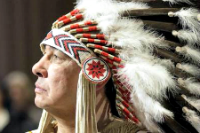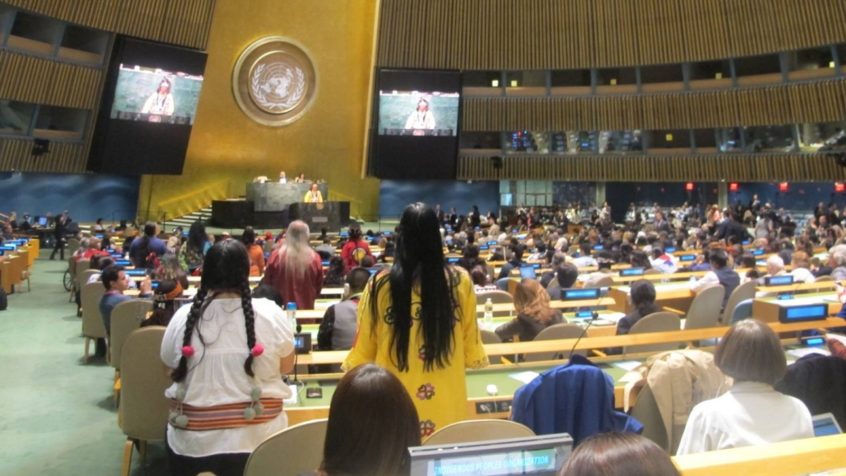Briefing Notes: Gender and Indigenous Women
 Gender and Indigenous Peoples (Briefing Note 1): Indigenous women face significant challenges to the full enjoyment of their human rights. Indigenous women experience multiple forms of discrimination, often lack access to education, health care and ancestral lands, face disproportionately high rates of poverty and are subjected to violence, such as domestic violence and sexual abuse, including in the contexts of trafficking and armed conflict. As the United Nations Permanent Forum on Indigenous Issues (UNPFII) has stated, globalization presents additional challenges in many parts of the world. Indigenous women’s roles have eroded due the compounding factors of loss of natural resources and depletion of the ecosystems, their transformation into cash economies, changes in local, social and decision-making structures, and their lack of political status within States.
Gender and Indigenous Peoples (Briefing Note 1): Indigenous women face significant challenges to the full enjoyment of their human rights. Indigenous women experience multiple forms of discrimination, often lack access to education, health care and ancestral lands, face disproportionately high rates of poverty and are subjected to violence, such as domestic violence and sexual abuse, including in the contexts of trafficking and armed conflict. As the United Nations Permanent Forum on Indigenous Issues (UNPFII) has stated, globalization presents additional challenges in many parts of the world. Indigenous women’s roles have eroded due the compounding factors of loss of natural resources and depletion of the ecosystems, their transformation into cash economies, changes in local, social and decision-making structures, and their lack of political status within States.
In spite of the specific challenges facing indigenous women, there is often a reluctance to address the gender dimensions of indigenous peoples’ issues, as to do so is seen as “interfering with culture” or “imposing western values”. However, from socioeconomic and poverty reduction perspectives, gender analysis is a means by which to identify and address gender-differentiated needs in a more accurate and targeted way.
Download all the Briefing Notes in English:
Briefing Note #1 Overview
Briefing Note #2 Economic and social development
Briefing Note #3 Education
Briefing Note #4 Culture
Briefing Note #5 Environment
Briefing Note #6 Human rights


